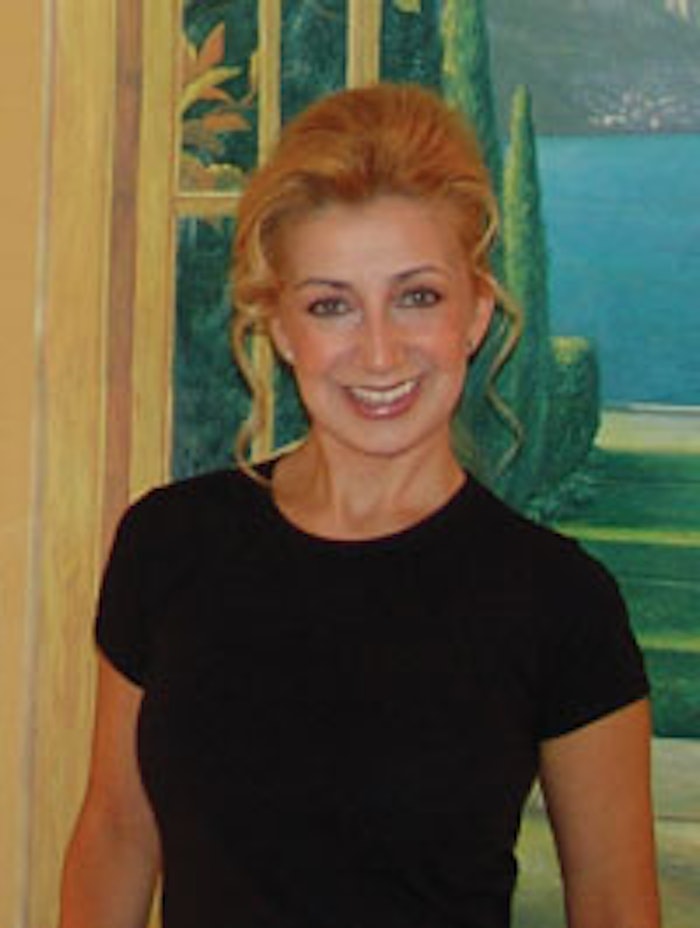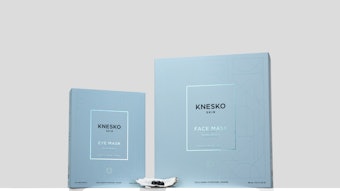
Carrie Griffin, owner of Slice of Heaven Spa in San Jose, California, was looking for a more social job. Her first career, in human resources, involved her working with engineers, a cerebral group notorious for being thoughtful and introverted. “Nobody ever said ‘hi’ because they were in their own brains,” explains Griffin.
“At this point in time, my mother was sick, and the doctors didn’t know what was wrong with her. Because of this, I wanted to learn about the body and have a flexible schedule to take her to doctor appointments and be guilt-free. For the first time in my life, I asked myself what I wanted to do. Sometimes you get your first job, then a promotion, and that path takes you one way when you realize you want to do something else,” she says.
Although she didn’t realize it at the time she made her choice, Griffin now acknowledges that her preference of esthetics as a career probably also had a lot to do with her father, Ron Griffin. “My father was a successful doing hair; he was the director of 13 beauty colleges and owned beauty supply stores. I learned the importance of customer service from him,” she explains.
She planned to attend esthetics classes at night and work at her regular job during the day. Then something unforeseen happened:Griffin was laid off. “It was a negative turned into a positive. I was disappointed, then relieved that I could go to day classes. I simultaneously went through esthetics and massage training,” she states. After earning a massage therapy license from the Institute for Beauty and Technology in Santa Clara and an esthetics license from Evergreen Beauty College in San Jose in 2005, Griffin began working at several part-time jobs—one at a spa in a fitness center and one at a day spa. “I loved it; I was able to get experience two times faster. At each place you work, you’re going to learn something totally different,” she says.
After this experience, Griffin rented space in a day spa for a year, and then obtained her first location that had two rooms, one of which she rented out. Next, she moved to her current location, a spa with five treatment rooms, where she operates her business and rents space to other spa professionals. How was she able to manage this steady growth? Simple: good customer service. “Growing at a steady pace is a good thing; you can refine how you operate, and you are apt to make fewer mistakes. You have to offer superior customer service. My father was so successful in business—he opened thriving beauty colleges, a flower shop, a restaurant—and the common thread was customer service and professionalism,” explains Griffin.
She credits certain customer service tactics as resulting in very happy clientele, including keeping notes after each visit to pick up where your conversation left off; sending articles about conditions to clients who suffer from them; and providing affordable giveaways when bulk purchases are made. Above all, says Griffin, do not ignore your most important asset—your repeat clients. “I try to service my repeat clients a bit more. I ask myself how I can make a facial different for a client who has been coming in for five years. I make a conscious effort to do this,” she says. Griffin uses CBI private label products in her spa and sells skin care products at her location, but she admits that retail isn’t a large focus for her.
With a constant eye on customer service, Griffin also suggests entrepreneurs become computer literate in order to save money on marketing by keeping it in-house and staying up on skin care education. She also mentions the need to be familiar with television infomercials about cosmetics and skin care in order to have a knowledgeable response to client questions. And, she emphasizes the importance of showing excitement when clients arrive. “People look forward to their spa day and therapist demeanors often don’t match their clients’,” she says.
As Griffin considers the future, she has aspirations of becoming an author and writing a book about the importance of customer service and professionalism that would be applicable to all industries, not just the skin care industry. She also mulls over the possibility of creating a product, or even a product line. Hiring employees is also something that may take place in her future. “As I get older, I would still be able to have my business, and work smarter, not harder, because eventually your body gives out. I would be able to set myself up to stay in the industry and manage my space,” she explains.
According to Griffin, “There’s never a point in skin care in which you’ve learned everything. There’s always a new study, new ingredients,new techniques. For me, it will never be mundane.” And it is with this attitude that her business—and her clients—will continue to flourish for years to come.










